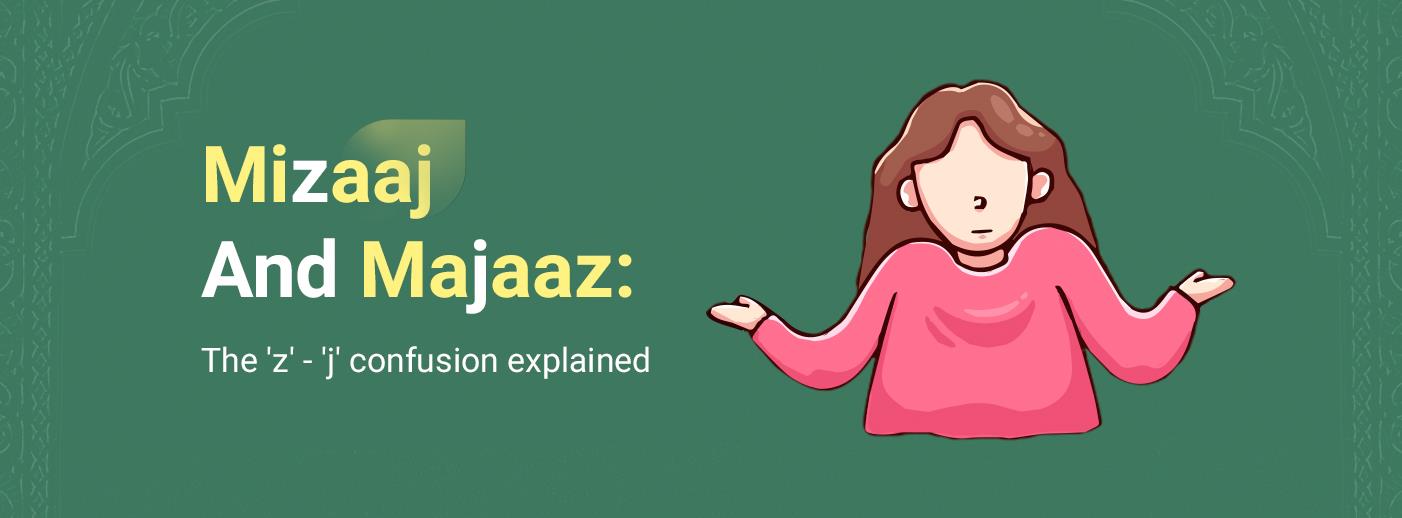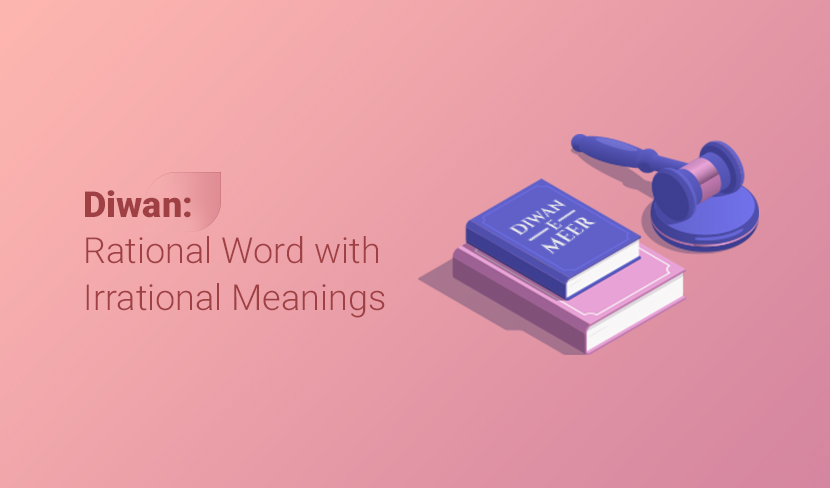Top searched
Saved words
khisyaanii billii khambaa noche
an embarrassed or ashamed person tends to vent his/her feeling by quarrelling
be-niyaaz
without want, free from want, wanting nothing, not in need, able to dispense, independent, carefree
Mizaaj And Majaaz: The 'z' - 'j' Confusion Explained

The mistaken interchangeability of the ‘z’ - ‘j’ sounds in Urdu is perhaps the most common one amongst speakers. When ‘sabzi’ becomes ‘sabji’ or when ‘mujrim’ becomes ‘muzrim’, Urdu speakers cannot help slightly cringing at the brutal replacement of ‘z’ with ‘j’ and vice versa. Although both these sounds are equally beautiful, yet, only one can exist as the correct pronunciation of a particular word.
Unless, we tell you that there are some words where this interchangeability will not be agonising for an Urdu speaker. And that is because both versions exist, and both are correct. In this scenario, different words with very slight differences in pronunciations exist with entirely different meanings.
Two such words for our discussion today are مجاز (majaaz) and مزاج (mizaaj). Although these words differ from one another at the phonological, morphological and semantic levels, yet, people often use one in place of the other.
The word majaaz (مجاز ) originates from Arabic and refers to an individual or entity that is legally authorised. It can also be used to denote the lawfulness and competence of an individual, organisation or entity etc.
Majaaz is often mispronounced as mijaaz, where the ‘a’ sound is replaced with the ‘i’ sound. Very few people actually know that mijaaz is not even a word! Often when people use the term mijaaz, the meaning that they want to refer to is that of the word mizaaj, which we have detailed below.
mizaaj (مزاج ) is also an Arabic word which is used to signify the nature, temperament, mood, habit etc. of an individual or situation. You may have often heard people ask questions like mizaaj kaisa hai? aur mizaaj mubarak? Asking people about their well-being is called mizaaj-pursii in Urdu. Check out our article dedicated entirely to conversations revolving around mizaaj-pursii here.
A very appropriate use of the word mizaaj by the widely admired shaayar, Jaun Elia is:
haañ Thiik hai maiñ apnī anā kā marīz huuñ
āḳhir mire mizāj meñ kyuuñ daḳhl de koī
Generally, people use these words interchangeably to refer to the nature or temperament of an individual. And more often than not, arguments are held by people who think that only either of the two is the correct pronunciation for the term mizaaj. But only a few people are aware of the correct version ‘majaaz’ with the knowledge of its meaning.
In the plethora of wrongly interchanged z’s and j’s, we hope that now, this one will not irk your mizaaj!
Delete 44 saved words?
Do you really want to delete these records? This process cannot be undone





